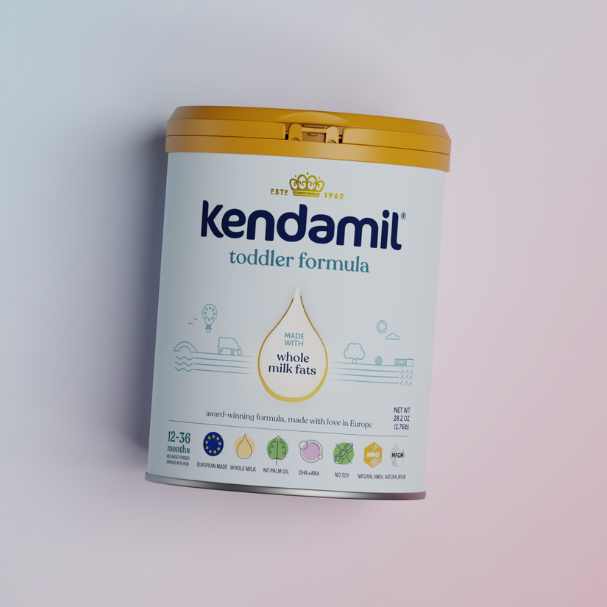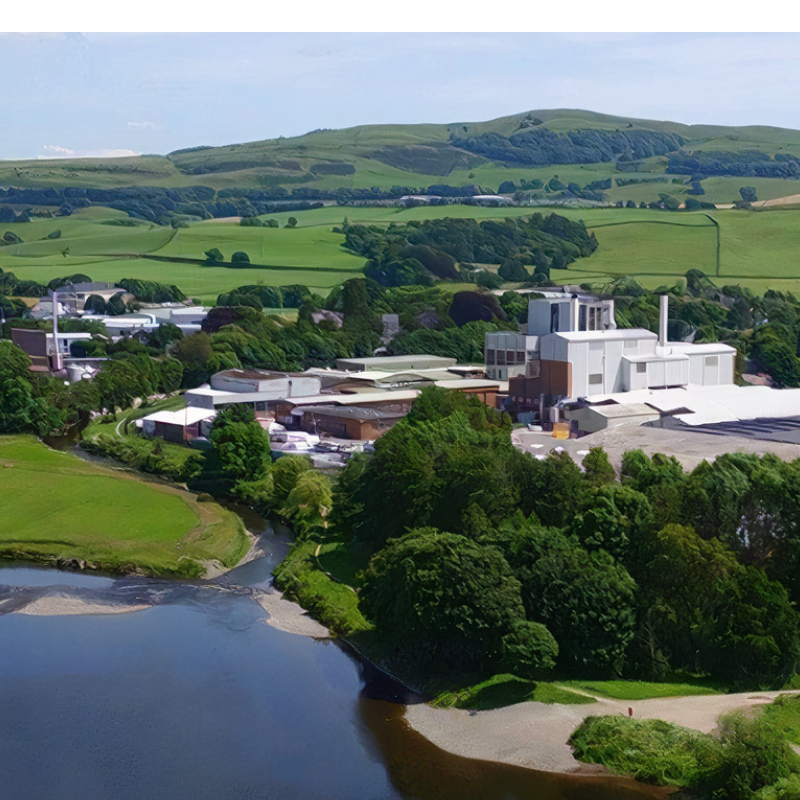As a new parent, choosing the right formula for your baby can feel overwhelming and difficult to navigate, especially when so many options are available promoting the competing benefits of different ingredients. One of those factors you may be considering is the carbohydrate source used in formula - typically lactose, corn syrup (or corn syrup solids), or maltodextrin. Did you know that, just like breast milk, roughly 40% of calories in formula come from carbs? That means the carbohydrate source in baby formula is important, so let’s look at all the options and help you make the best choice for your little one.
Understanding the Differences Between Lactose and Corn Syrup.
Lactose and corn syrup are two common ingredients used in baby formula. The differences are pretty simple; lactose is a natural sugar found in milk, while corn syrup is a sweetener made from corn starch.
What is Lactose?
Lactose is a naturally occurring sugar found in milk, including breast milk and is the primary carbohydrate source used in most infant formulas. It’s also a disaccharide sugar, meaning a sugar made up of 2 sugar molecules, specifically glucose, and galactose. Lactose is easily digested by babies and provides them with the energy they need to grow and develop. It also helps to promote the growth of beneficial bacteria in the gut and supports the absorption of calcium and other minerals.
What is Corn Syrup?
On the other hand, corn syrup and corn syrup solids are sweeteners derived from corn starch. It is commonly used in processed foods and beverages, including some baby formulasCorn syrup solids are made by removing the water from corn syrup, leaving behind a powder or solid substance. While both contain glucose and other sugars derived from corn, corn syrup is a liquid, while corn syrup solids are a dry powder.
What is Maltodextrin?
Maltodextrin is closely related to corn syrup solids — the key difference is their sugar content. Both undergo hydrolysis, a chemical process involving the addition of water to assist breakdown further. However, after hydrolysis, corn syrup solids are at least 20% sugar, while maltodextrin is less than 20% sugar. Both maltodextrin and corn syrup solids are often used as a thickener or stabilizers in processed foods.
The Benefits of Lactose in Baby Formula.
Lactose is THE PRIMARY carbohydrate source found in breast milk and all other mammalian milk, and is widely recommended as the preferred choice for most babies. It provides essential nutrients such as galactose, which is important for brain development, and helps promote the growth of healthy gut bacteria. Lactose is also easier to digest than other carbohydrates, which can help reduce the risk of digestive issues such as constipation and colic. Additionally, lactose has a lower glycemic index than corn syrup, which means it won't cause a rapid spike in blood sugar levels. Overall, lactose is a safe and beneficial ingredient to include in your baby's formula.
Corn Syrup in Formula: Is it Bad for Babies?
While corn syrup is generally considered safe for consumption in small amounts, It is not always the ideal carbohydrate source. If your baby does not need a specialty formula, the advantages of using lactose outweigh the advantages of using corn syrup. That’s because corn syrup is a highly processed sweetener with a high glycemic index, which can cause a rapid spike in blood sugar levels.
Remember, babies get at least 40% of their calories (energy) solely from carbs. So, it's important to consider the type of carbohydrate source you choose for your baby's formula, as they will consume it daily for the first 6 months of their life as their only source of nutrition. Choosing a lactose-based formula ensures your baby gets the essential nutrients they need for healthy growth and development.
Maltodextrin in Baby Formula
Maltodextrin is commonly used as a substitute for lactose in lactose-free formulas. While maltodextrin is generally considered safe for consumption, some experts believe that it may be less beneficial for babies than lactose. Maltodextrin is not as easily digested as lactose and may not provide the same nutritional benefits.
Lactose vs Corn Syrup in Baby Formula
While both lactose and corn syrup can provide babies with the energy they need to grow and develop, they are not created equal when it comes to the optimal carb source for infant nutrition lactose is the preferred choice for most parents and healthcare professionals because it’s the carbohydrate source in breast milk, it is easily digested and provides a steady supply of energy. In contrast, corn syrup is a highly processed sweetener that, while safe to consume in small amounts, may not be the best choice for your baby. When choosing a formula, it's important to read the label carefully and consult with your pediatrician to ensure you're making the best choice for your little one.
Formula Without Corn Syrup
The good news?! There are many baby formulas available in the market that do not contain corn syrup. Some of these formulas use lactose as the primary carbohydrate source, while others use sugars like maltodextrin, glucose syrup, or rice syrup. If you are concerned about the use of corn syrup in baby formula, be sure to read the label carefully and choose a formula that does not contain corn syrup or corn syrup solids.
European Formula and Organic Formulas
If you are looking for a baby formula that does not contain corn syrup or other non-lactose carbohydrates, you may want to consider European formula or organic formulas. European formula is regulated differently than American formula and has stricter standards for the use of additives and other ingredients. Many European formulas use lactose as the primary carbohydrate source and do not contain any other added sugars, including corn syrup. This is because the European Food and Safety Authority (EFSA) makes evidence-based recommendations for infant formula whereby stating that the preferred carbohydrate source in the formula should be lactose at levels of at least 4.5 grams per 100 calories, even in hydrolyzed formulas. The only exceptions are those formulas labeled as "lactose-free.
On the other hand, organic formulas are made from organic ingredients and do not contain synthetic additives or chemicals. Instead of corn syrup, they may use alternative carbohydrate sources, such as brown rice syrup or tapioca syrup.
If you are looking for a baby formula brand that doesn’t use corn syrup or maltodextrin, Kendamil is a great option to consider. Kendamil uses lactose as its primary carbohydrate source, which is a natural and easily digestible carbohydrate found in breast milk. It is also free from palm oil, soy, GMOs, and artificial preservatives. Kendamil is committed to providing a high-quality, organic, and sustainable baby formula that supports your baby’s growth and development. With Kendamil, you can trust that your baby is getting the best possible nutrition without any additives.
Ultimately, the best formula for your baby will depend on their individual needs and preferences. Be sure to consult with your pediatrician and read the label carefully to choose a formula that is appropriate for your little one.
Helpful Resources:
What Is Lactose? – Food Insight














